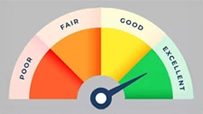Term Deposits Vs. Fixed Deposits: Know the Difference
September 03, 2025

Rohan, a young professional, is looking for a safe place to park his savings. He wants guaranteed returns but is torn between two options—Term Deposits (TDs) and Fixed Deposits (FDs). While researching, he comes across conflicting information. Some say they’re the same, while others point out subtle differences.
If you’ve ever found yourself in Rohan’s shoes, wondering whether TDs and FDs are just different names for the same thing or if they offer distinct benefits, you’re not alone! In this blog, we’ll decode the concept of FDs and TDs, helping you choose the right investment option based on your financial goals. Let’s dive in!
When it comes to secure investment options, Term Deposits (TDs) and Fixed Deposits (FDs) are among the most popular choices for Indian investors. However, many people get confused between these terms. Are they the same, or do they have key differences? This blog will break it down in a simple and engaging way, helping you make an informed decision.
What is a Term Deposit?
A Term Deposit is a broad category of deposits where you invest a sum of money for a specific period, earning interest at a fixed rate. It includes Fixed Deposits (FDs), Recurring Deposits (RDs), post office deposits, foreign currency deposits, etc.
Key features of Term Deposits:
- Money is locked in for a specific period.
- Interest rates are fixed for the entire tenure.
- Premature withdrawals may attract a penalty.
What is a Fixed Deposit?
A Fixed Deposit (FD) is a type of Term Deposit where you invest a lump sum for a fixed period and earn a predetermined interest rate.
Key features of Fixed Deposits:
- You deposit a lump sum amount once.
- The interest rate is fixed for the entire tenure.
- You can choose interest payouts (monthly/quarterly) or get the entire amount with interest at maturity.
- Premature withdrawals may be allowed but with a penalty.
Key Differences Between Term Deposit and Fixed Deposit
| Feature | Term Deposit | Fixed Deposit |
| Definition | Broad category including FD and RD | A specific type of term deposit |
| Deposit Type | Can be a lump sum (FD) or periodic payments (RD) | Always a one-time lump sum deposit |
| Interest Payout | Depends on the type of deposit | Monthly, quarterly, or at maturity |
| Flexibility | More flexible (includes both RD & FD) | Less flexible compared to RD |
| Premature Withdrawal | Possible but with a penalty | Possible but with a penalty |
| Best for | Those looking for both lump sum and periodic savings | Those who prefer a one-time investment for a fixed period |
Final Thoughts
Both Term Deposits and Fixed Deposits are excellent investment options, especially for risk-averse investors. Choose the type of deposit that suits your financial goals.
Looking to grow your savings faster? Ujjivan SFB offers a wide range of fixed deposit products. Select the FD of your choice and take a step forward to your financial goals. Alternatively, you can browse through Ujjivan SFB product suite - our wide range of financial products are designed to make your financial life better.
Disclaimer:
The contents herein are only for informational purposes and generic in nature. The content does not amount to an offer, invitation or solicitation of any kind to buy or sell, and are not intended to create any legal rights or obligations. This information is subject to updation, completion, amendment and verification without notice. The contents herein are also subject to other product-specific terms and conditions, as well as any applicable third-party terms and conditions, for which Ujjivan Small Finance Bank assumes no responsibility or liability.
Nothing contained herein is intended to constitute financial, investment, legal, tax, or any other professional advice or opinion. Please obtain professional advice before making investment or any other decisions. Any investment decisions that may be made by the you shall be at your own sole discretion, independent analysis and evaluation of the risks involved. The use of any information set out in this document is entirely at the user’s own risk. Ujjivan Small Finance Bank Limited makes no representation or warranty, express or implied, as to the accuracy and completeness for any information herein. The Bank disclaims any and all liability for any loss or damage (direct, indirect, consequential, or otherwise) incurred by you due to use of or due to investment, product application decisions made by you on the basis of the contents herein. While the information is prepared in good faith from sources deemed reliable (including public sources), the Bank disclaims any liability with respect to accuracy of information or any error or omission or any loss or damage incurred by anyone in reliance on the contents herein, in any manner whatsoever.
To know more about Ujjivan Small Finance Bank Products Visit:"https://www.ujjivansfb.in"
All intellectual property rights, including copyrights, trademarks, and other proprietary rights, pertaining to the content and materials displayed herein, belong
to Ujjivan Small Finance Bank Limited or its licensors. Unauthorised use or misuse of any intellectual property, or other content displayed herein is strictly prohibited and the same is not intended for distribution to, or use by, any person in any jurisdiction where such distribution or use would (by reason of that person’s nationality, residence or otherwise) be contrary to law or registration or would subject Ujjivan Small Finance Bank Limited or its affiliates to any licensing or registration requirements.
FAQs
1. Are Fixed Deposits and Term Deposits the same?
No, Fixed Deposits are a type of Term Deposit. Term Deposits also include Recurring Deposits (RDs), post office deposits, etc.
2. Can I withdraw money before maturity in an FD or Term Deposit?
Yes, but premature withdrawal may attract a penalty, and the interest earned may be lower.
3. Is FD safer than a Term Deposit?
Both are equally safe, as they are backed by banks and financial institutions.
4. Can I get a loan against my Fixed Deposit?
Yes, banks offer loans against FDs, usually up to 90% of the FD value.
5. What is the minimum amount required to open a Term Deposit?
The amount varies by bank, but most banks allow Term Deposits starting from ₹1,000.
6. Do senior citizens get extra benefits in FDs?
Yes, senior citizens are eligible for additional interest rates of 0.50%*.
7. Are FDs taxable?
Yes, FD interest is taxable as per your income tax slab. However, tax-saving FDs under Section 80C provide tax benefits.
Latest Blogs

APK Fraud: How One Wrong Download Could Empty Your Bank Account
May 13, 2025
Picture this. You’re sipping your evening tea when your phone rings.

Gold Loan LTV Ratio Explained (75% to 85%): What It Means for Borrowers
March 20, 2025
In June 2025, the Reserve Bank of India (RBI) introduced a significant relaxation for gold loan borrowers: the maximum Loan-to-Value (LTV) ratio for loans below ₹2.5 lakh was raised to 85%, up from the long-standing cap of 75%. Loans between ₹2.5 lakh and ₹5 lakh can now go up to 80%, while loans above ₹5 lakh continue under the 75% ceiling.

Good Debt vs Bad Debt: Learn the Difference
August 13, 2025
Every month, millions of Indians wait for the familiar debit alert, an EMI deducted from their account.

Got a Tax Refund? 5 Smart Ways to Put Your 2025 Refund to Work
August 13, 2025
For many taxpayers, there’s a unique sense of relief when a tax refund arrives.

Credit Score Not Improving? 5 Mistakes You Might Be Making
August 13, 2025
For most of us, a credit score feels like a silent judge sitting in the background of our financial lives.





